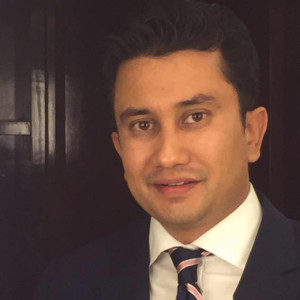Hi,
I would evaluate financial (sponsorship cost and returns generated) and non-financial aspects (brand reputation, risks-e.g. leave the opportunity to competitors, ...)
Hope it helps,
Antonello


Hi,
I would evaluate financial (sponsorship cost and returns generated) and non-financial aspects (brand reputation, risks-e.g. leave the opportunity to competitors, ...)
Hope it helps,
Antonello

Hi Anonymous
You need to first ask for the business objective to be achieved through sponsorship : (1) Customer Aquisition (2) Brand Activation/Awareness (3) Social Engagement, (4) Prospective Employee Engagement (you find brands sponsoring college events) or any other
bases on the objective you need to deduce Whether to sponsor or not depends on basis the Intangible and Tangible Returns from the Sponsorship
To determine the returns you need to compare the synergies across " whom/what are you sponsoring" and " the brand or vision of the sponsor". You can assess these sysnergies across the following heads :
1. Brand Synergy :
- Is the event in line with the brands marketing strategy ? - Who are the target audience/customers of the event? - What % of the target audience of the event would be the sponsors addressable base - What are the channels of customer engagement - Brand vs. Event - What's the cross leverage : Oportunities to Co-brand, complimentary products, product extension, moment marketing, etc.
2. Investments Required :
- How much is the ask or how much should one invest. INvestment as a % of total marketing budget
3. Returns or Opportunities :
- # of Leads/Impression that may generated - # of Sales Opportunity - Return on Investment
4. What are the Risks : Brand, Operational, Financial
Hope the approach helps you refine your framework. Please reach out to me if you have any issues. All the best






Instead of searching for frameworks, why not try and structure it first?
The very first question you have to ask is what the objective is (most probably profit, since we don't have any information that tells us that the sponsor is a non-profit organization or similar). Then you have to define your criteria which have to be met if the answer to the core question has to be ''yes''.
Obviously, the very first one is: "Will this make economic sense?" In this case, it means nothing else than ''Will the value created by this sponsorship for my company over my investment horizon exceed the money invested to sponsor the event?''
Then, rigorously disaggregate the components of this condition (investment - expected yearly profits - investment horizon) using an issue tree, and after reaching maximum granularity, start discussing with the interviewer how each of the sub-components can be quantified (= which qualitative elements would be useful to know in order to quantify them).
The investment will most probably be defined by the event organizer, and the investment horizon has to be defined by the client (=ask interviewer for both). The central element to focus now are the expected yearly profits. It's critical here to think about how the company who sponsors hopes to earn their money back over time, means the mechanism of investment returns. Are we hoping to increase sales by an increased brand recognition? Arouse the interest of potential employees (therefore increase our profits in the long run or save recruiting costs etc.)? There might be other mechanisms as well, which has to be discussed with the interviewer...
Assuming we focus on potential increased sales, we'll have to find a way of forecasting them:
Let's first think about how to further break them down: people attending this event x % interested in products/services we offer x %potential increased usage per person could be an example.
Then we have to quantify them: here we need qualitative factors, for example things like customer surveys, results from similar sponsorships from the past/market research data about their efficacy in general, our product/service mix etc.
Don't forget to mention the other two criteria:
- "Do we have the capital to sponsor this event?"
- "Can we handle the risks?" (which can only be fully determined after the analysis of the first criterion, some things coming to my mind beforehand are opportunity costs by not spending the money elsewhere and data sensitivity of the results gained)












